Nanzen-ji Fall Colors and Walking Route
Fall colors transform the grounds of Nanzen-ji in Higashiyama, Kyoto into a vibrant space that beautifully complements the historical architecture of the temple. The expansive public area of the temple is free to access and provide many great photo opportunities. Here’s our guide for visiting Nanzen-ji to appreciate its autumn foliage.
All of the photos in this post were taken on November 29, 2024 around 7-8 am. The color progress was about 70% and we got a mix of red, orange, yellow and green. While there were a few people around, the overall atmosphere remained serene. If you prefer your photos without heavy crowds, it pays off to wake up early as Nanzen-ji is one of Kyoto’s popular temples during the fall.
Since we were staying at The Westin Miyako Kyoto (Agoda | Booking), we began our walk at the Keage Tunnel, located just across the street. If you take the train, simply get off at Keage Station and you will also see this tunnel across the street.
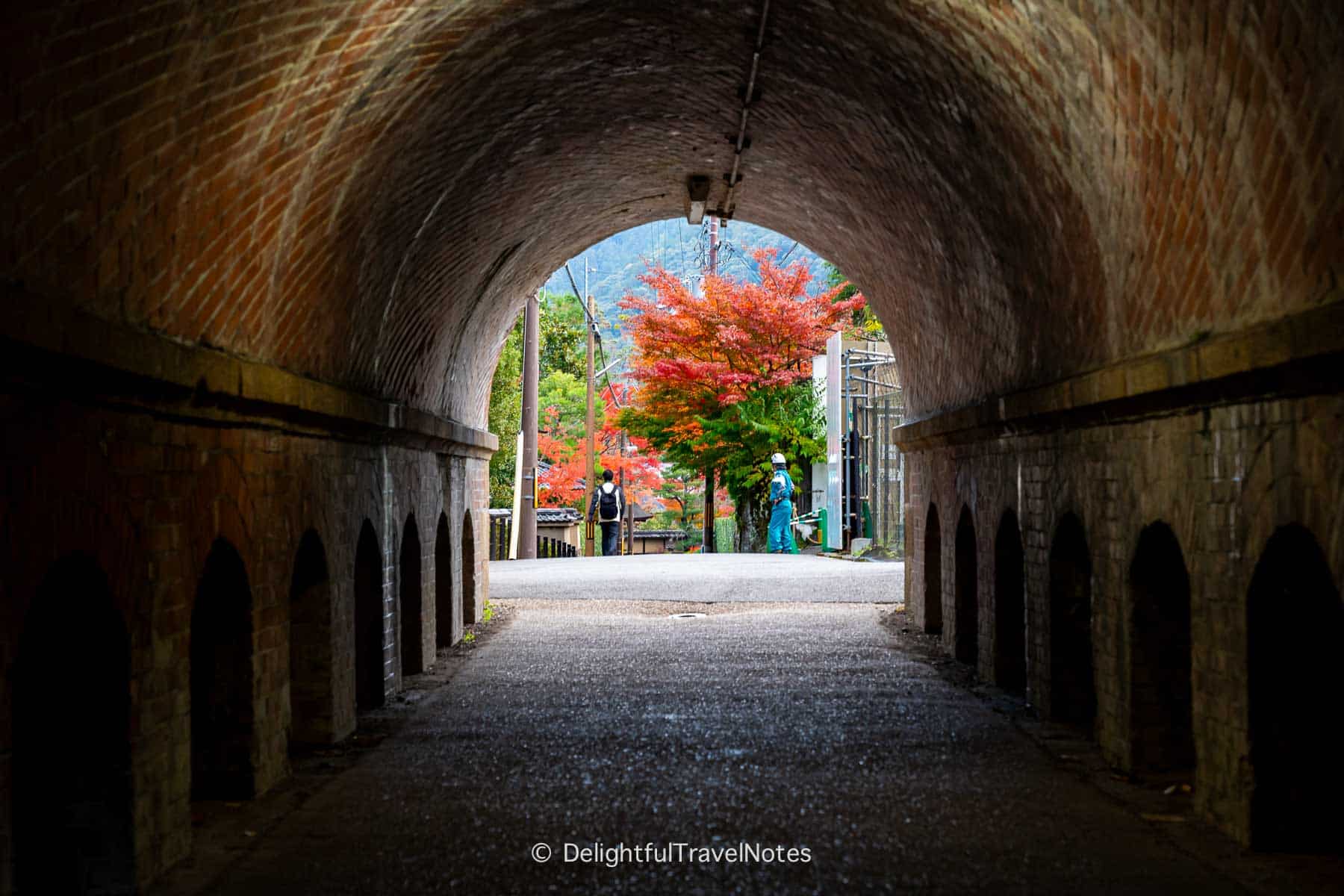
The view is framed by the dark brick walls of the tunnel, leading the eye toward the brightly lit exit, where vibrant red and orange maple leaves create a stunning contrast to the shadowy interior. Following the path lined with colorful trees, we passed by Konchi-in, a small temple with a beautiful Crane and Turtle rock garden.
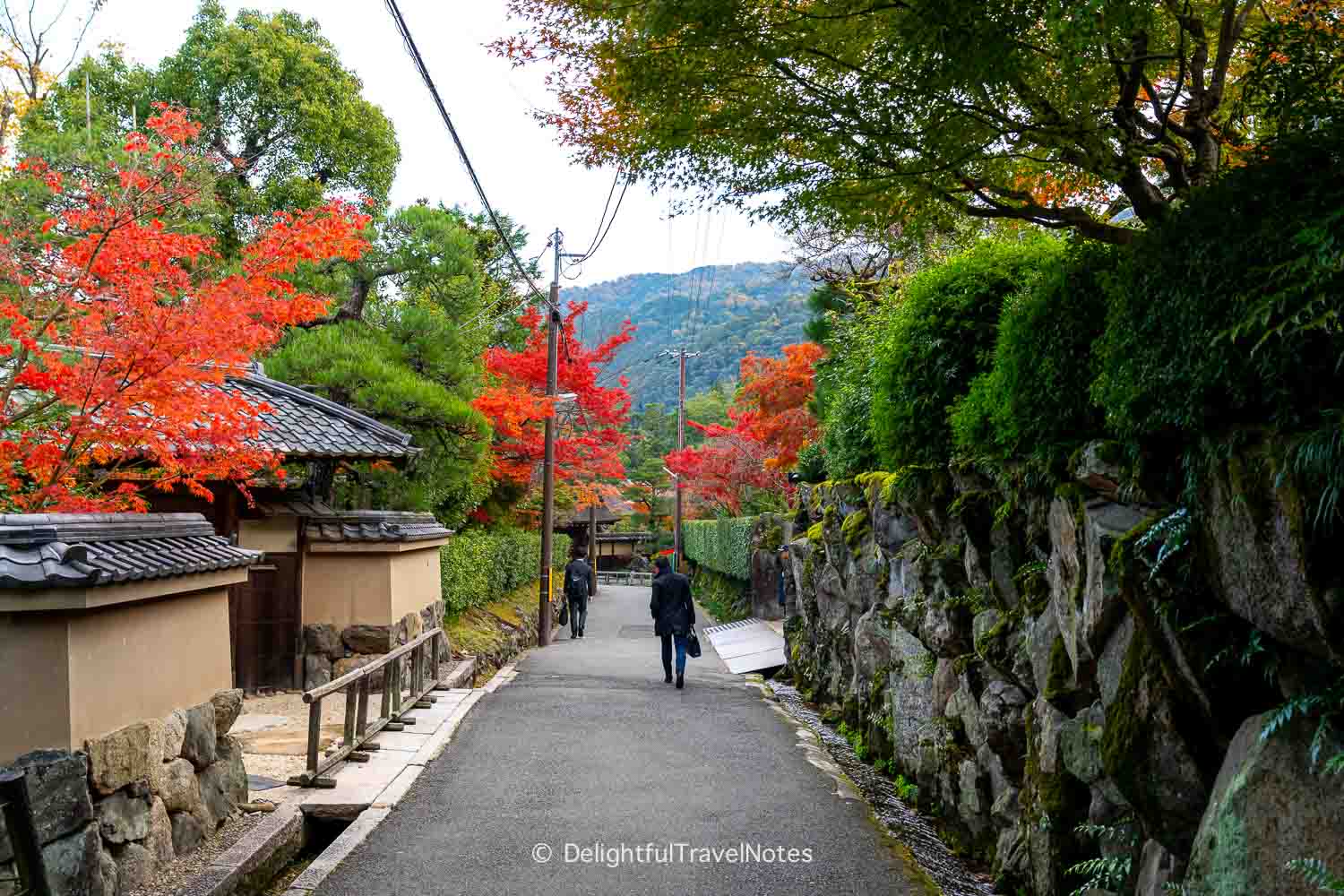
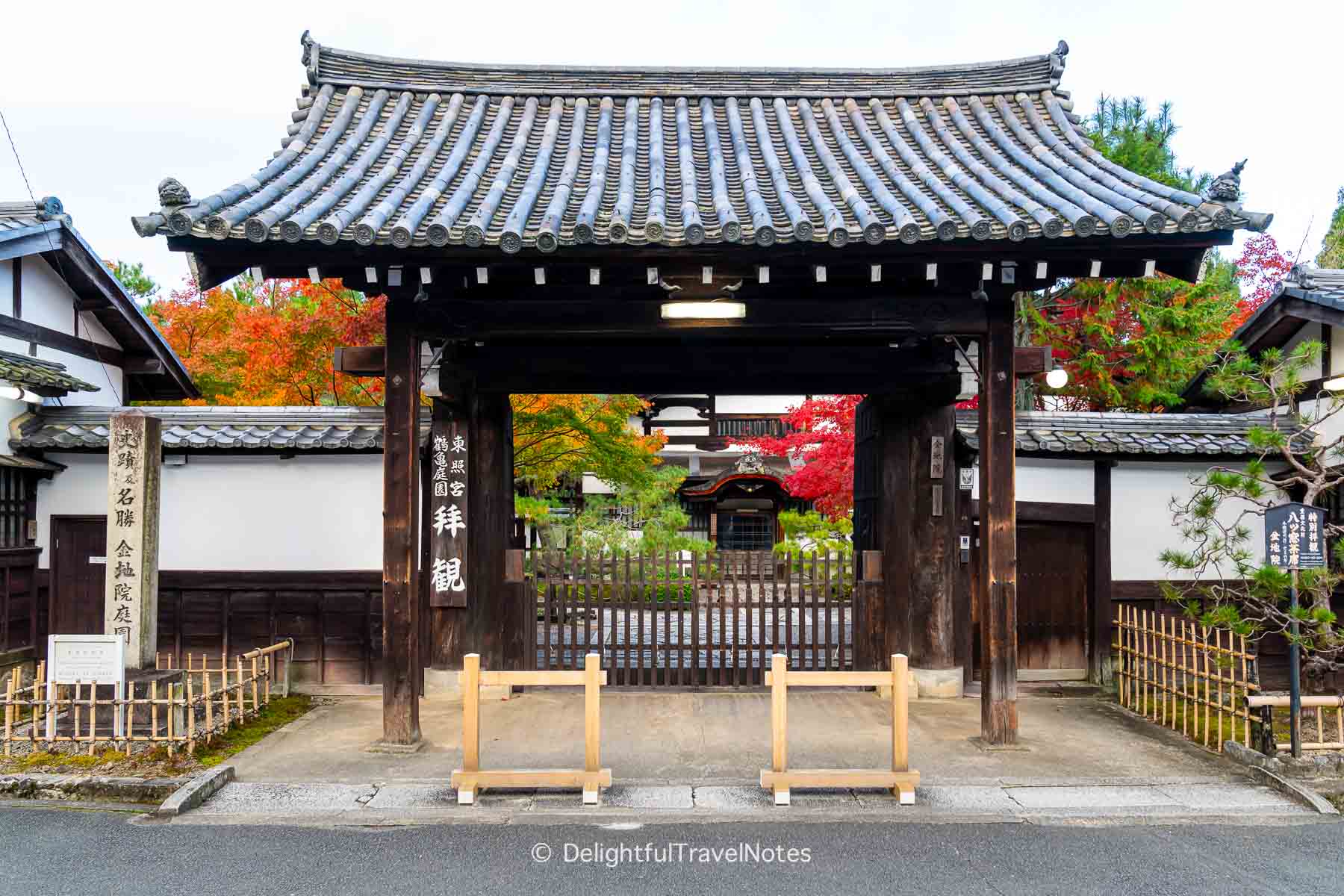
It took us less than 10 minutes to reach the iconic Sanmon Gate, a grand wooden structure at Nanzen-ji. From a distance, the view didn’t feel particularly impressive yet. However, as we approached the gate closer, the scenery began to reveal itself. The scale and symmetry of the gate, and rich colors of the surrounding foliage created a truly striking scene.
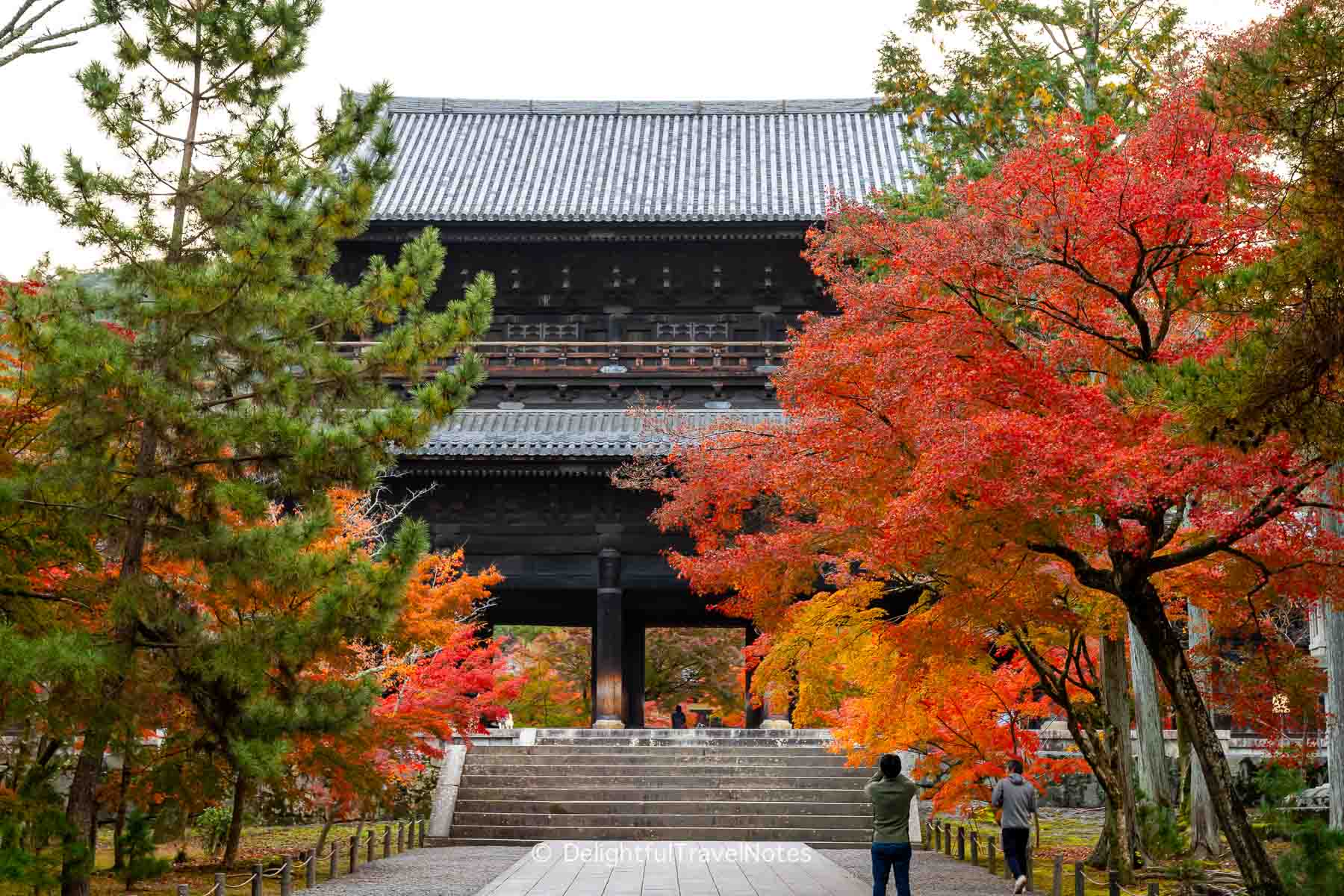
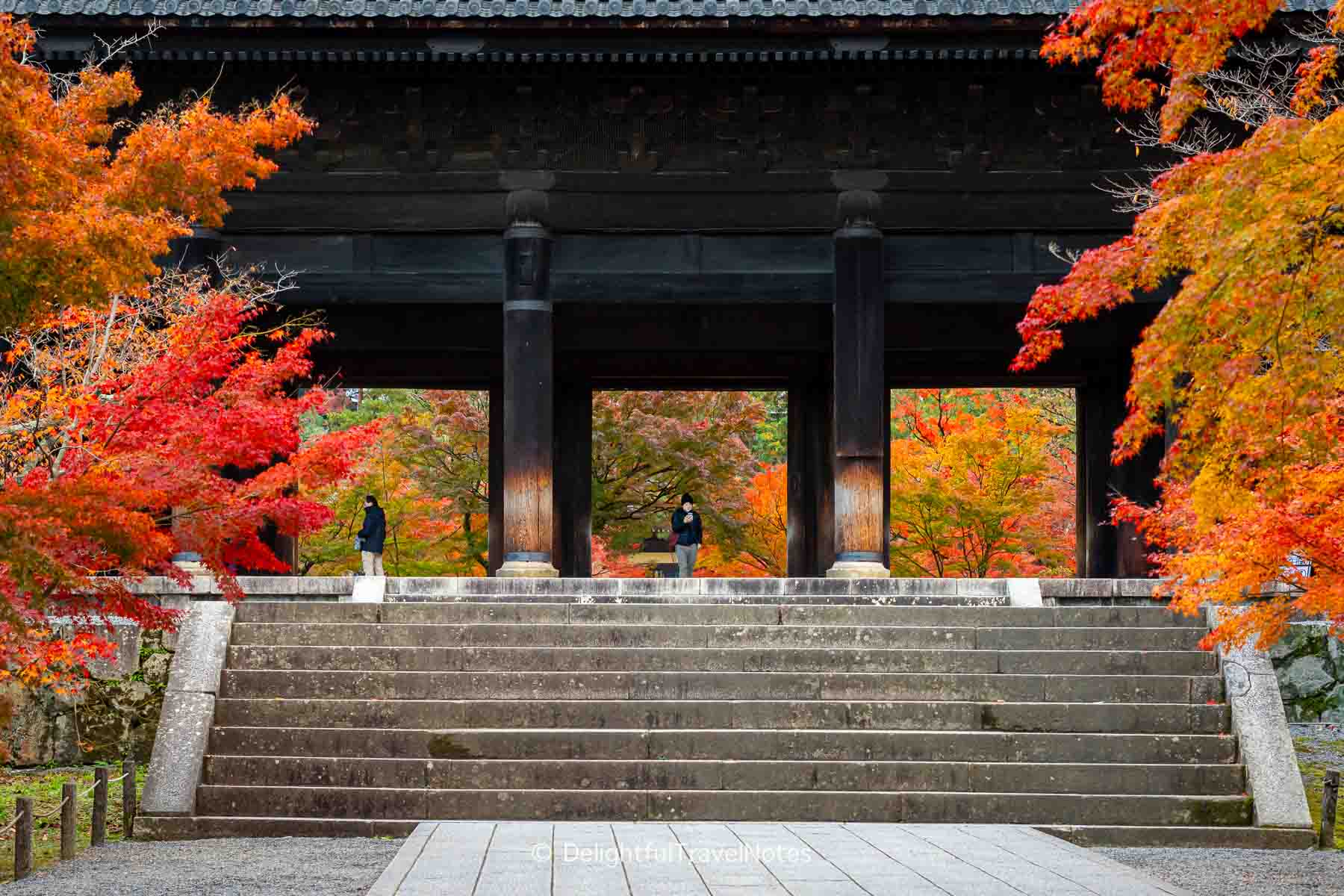
Fiery red and orange maple leaves framed the gate beautifully, contrasting with the dark wood of the structure. The trees in the background also glowed in warm autumn hues, adding depth to the scene.
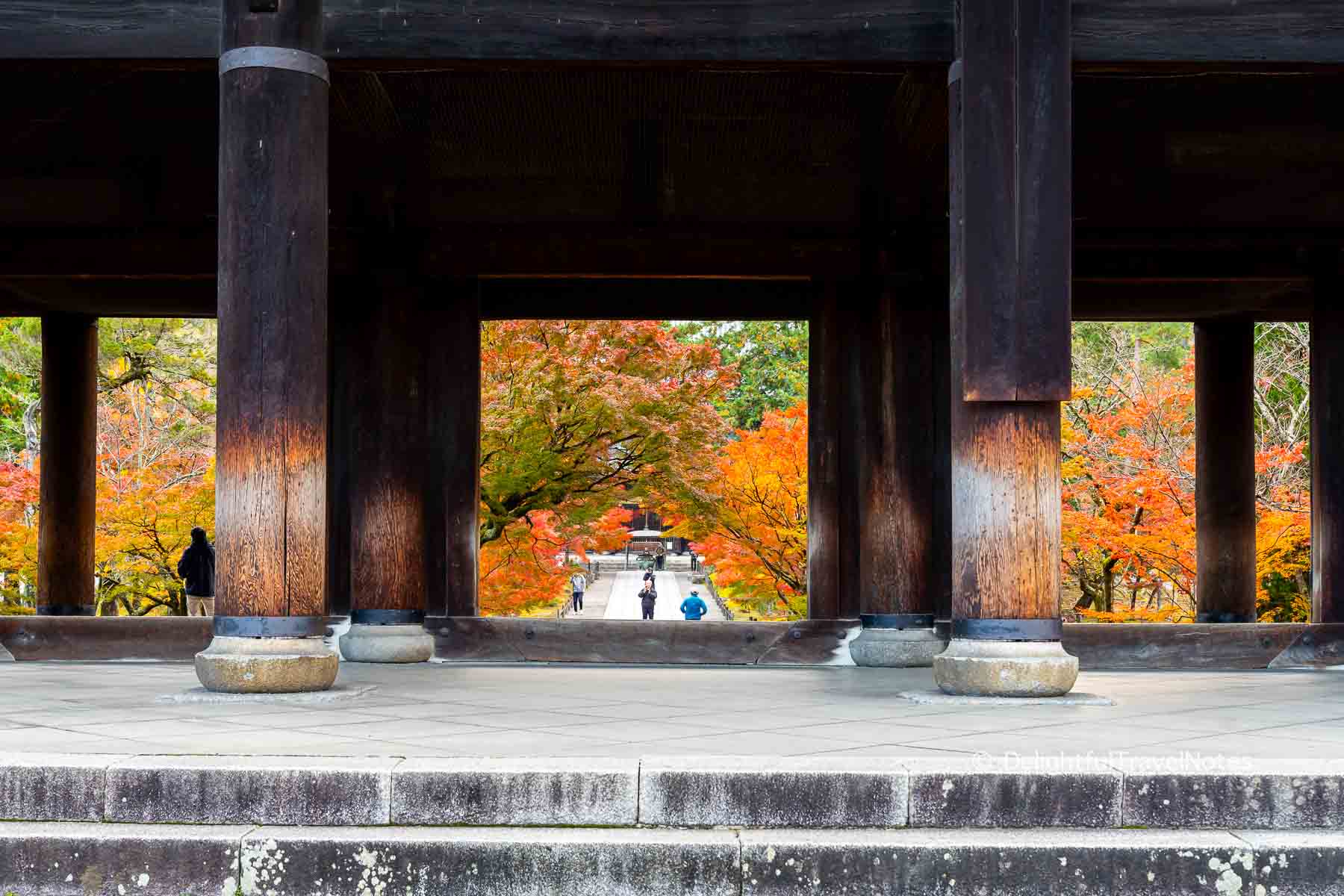
Passing the gate, we walked along the path surrounded by bold reds and yellows. As it was still early, all the temple halls were still closed.
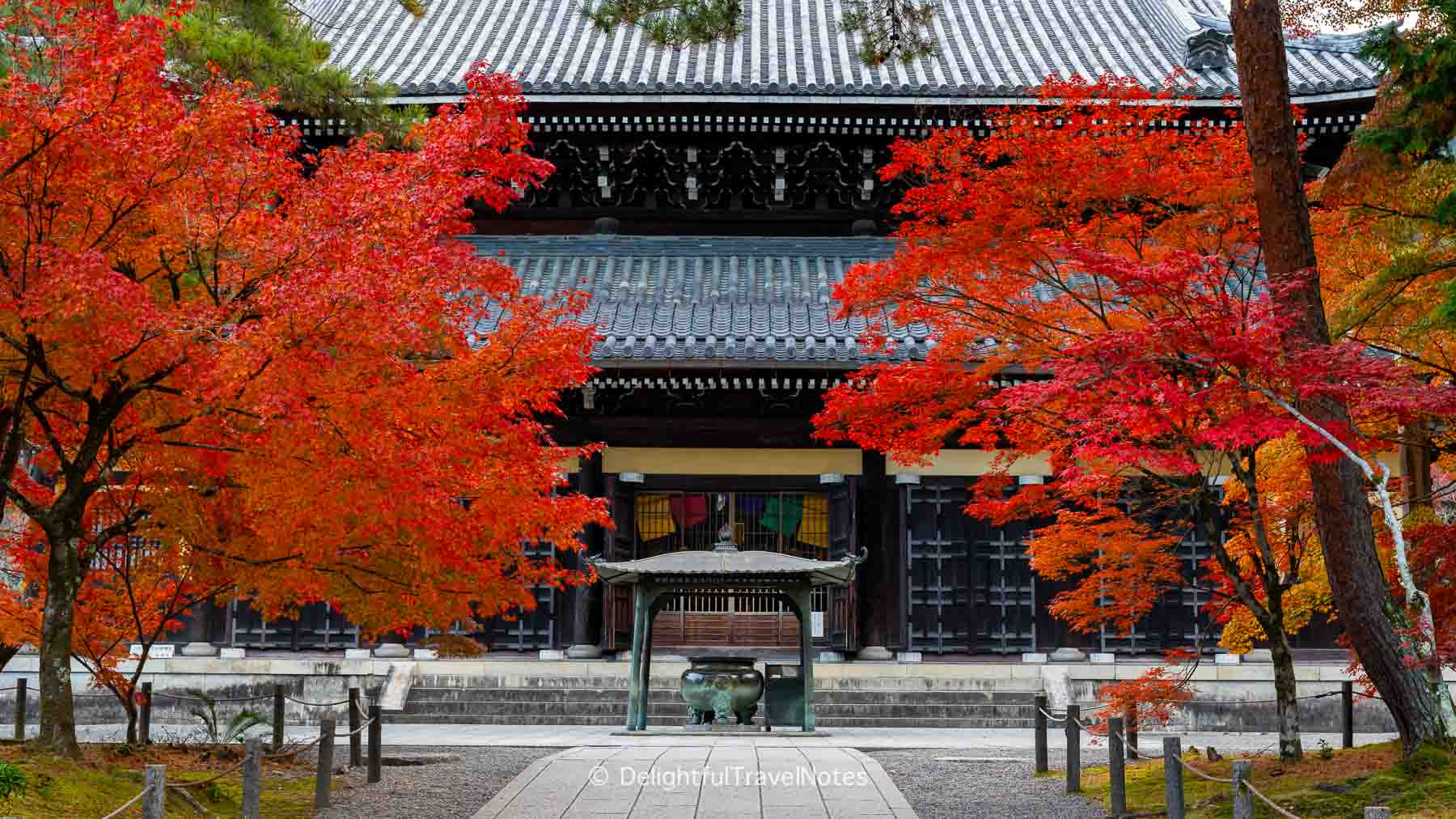
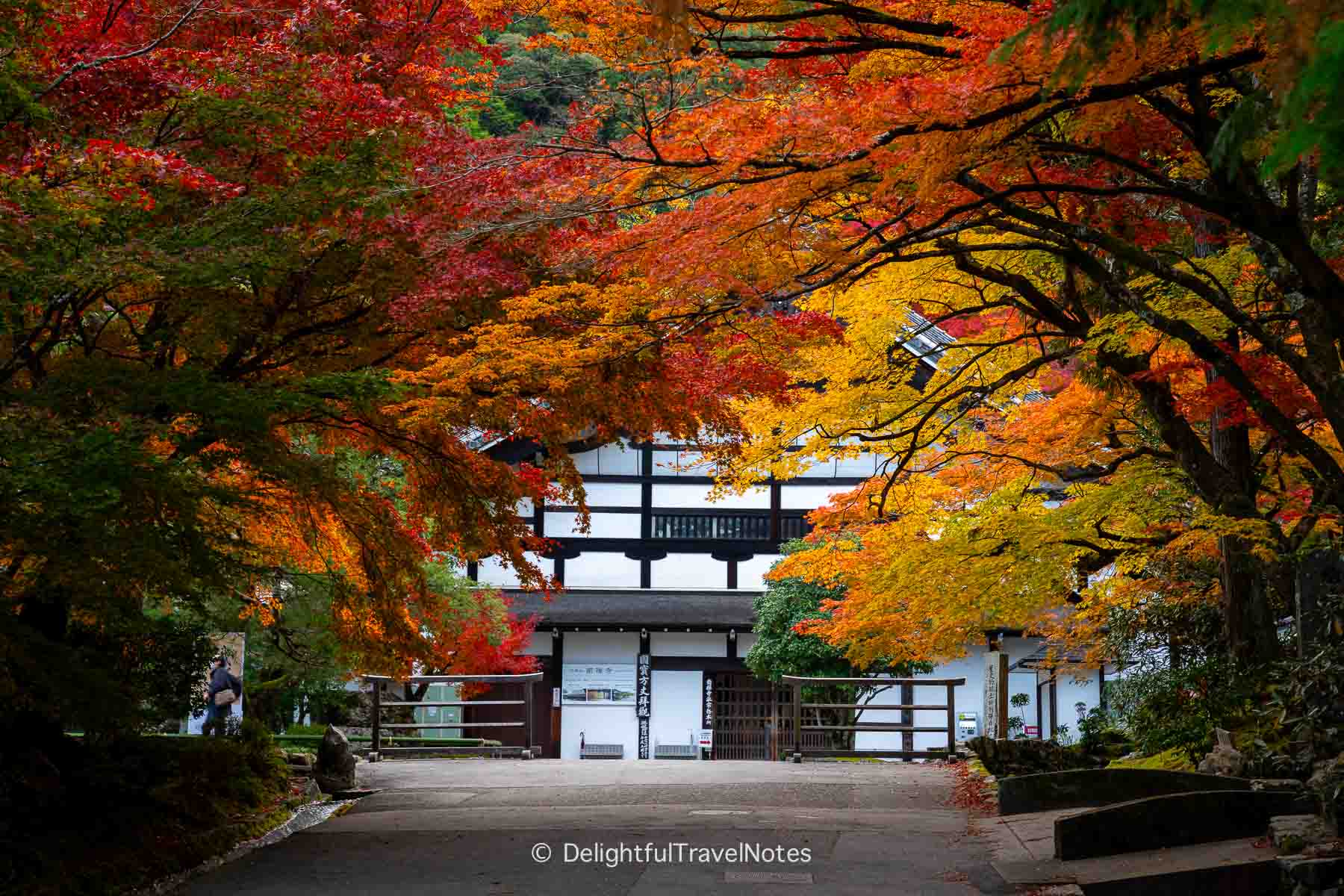
We made our way to the Suirokaku Aqueduct, a historic structure built over 100 years ago to transport water from Lake Biwa to Kyoto. The system is still in use today, and I highly recommend visiting the nearby Lake Biwa Canal Museum to learn more about its history and engineering.
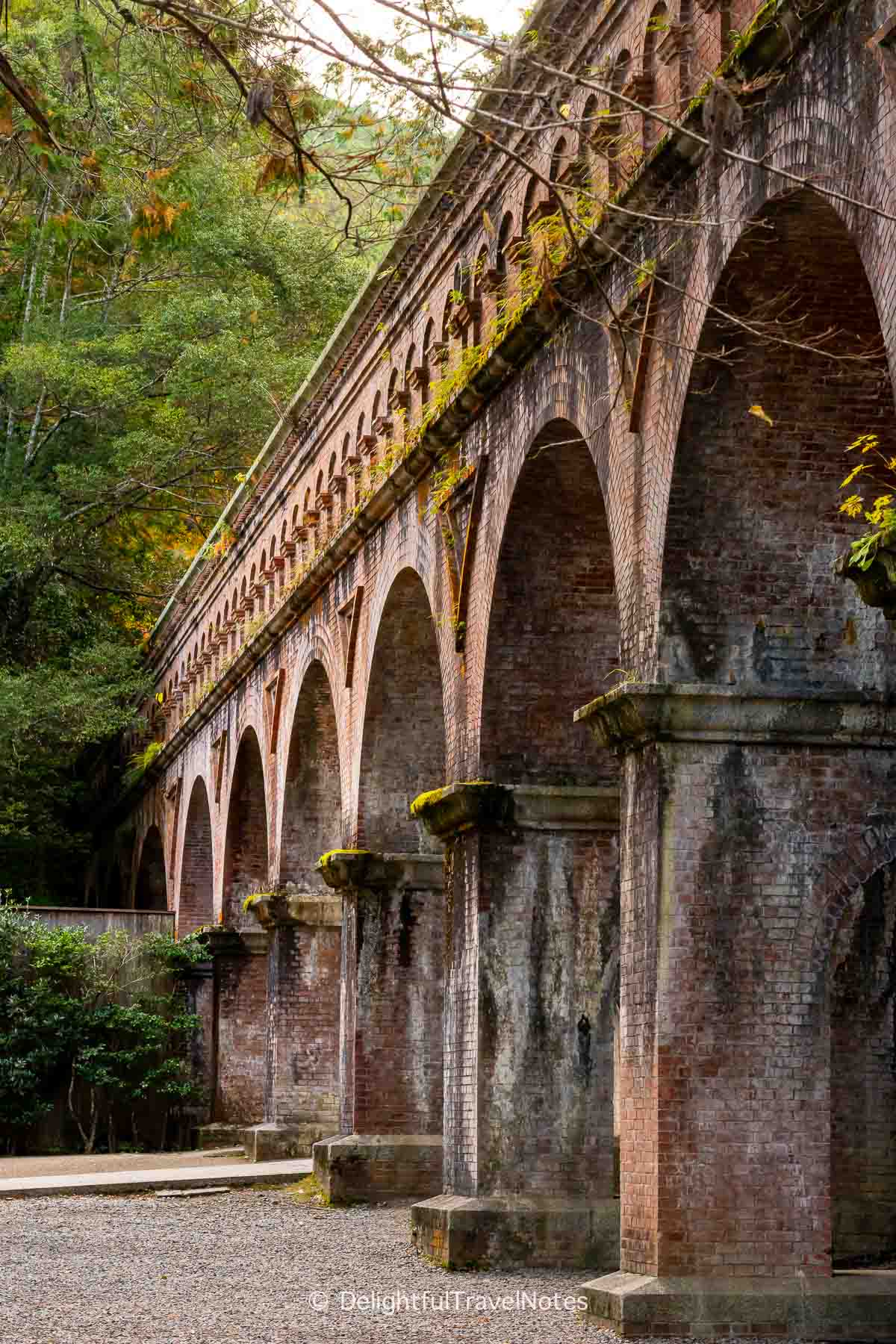
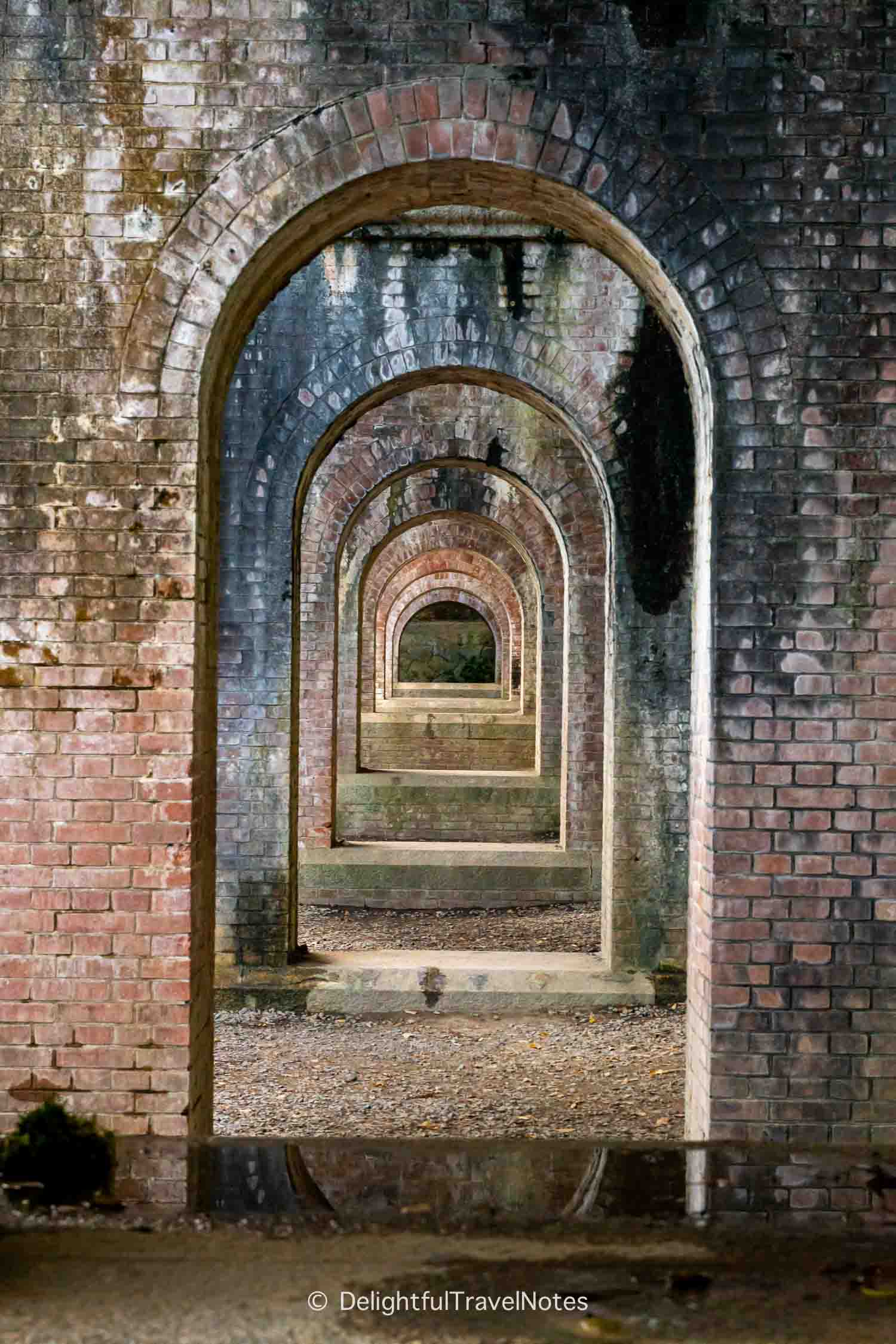
The fall colors around the aqueduct were not as developed as those near the Sanmon Gate, but the scene was still captivating under the soft morning light. Moss and small plants growing on the brickwork enhanced the rustic charm of the aqueduct. Here’s a maple tree with leaves still transitioning against the aged brick backdrop.
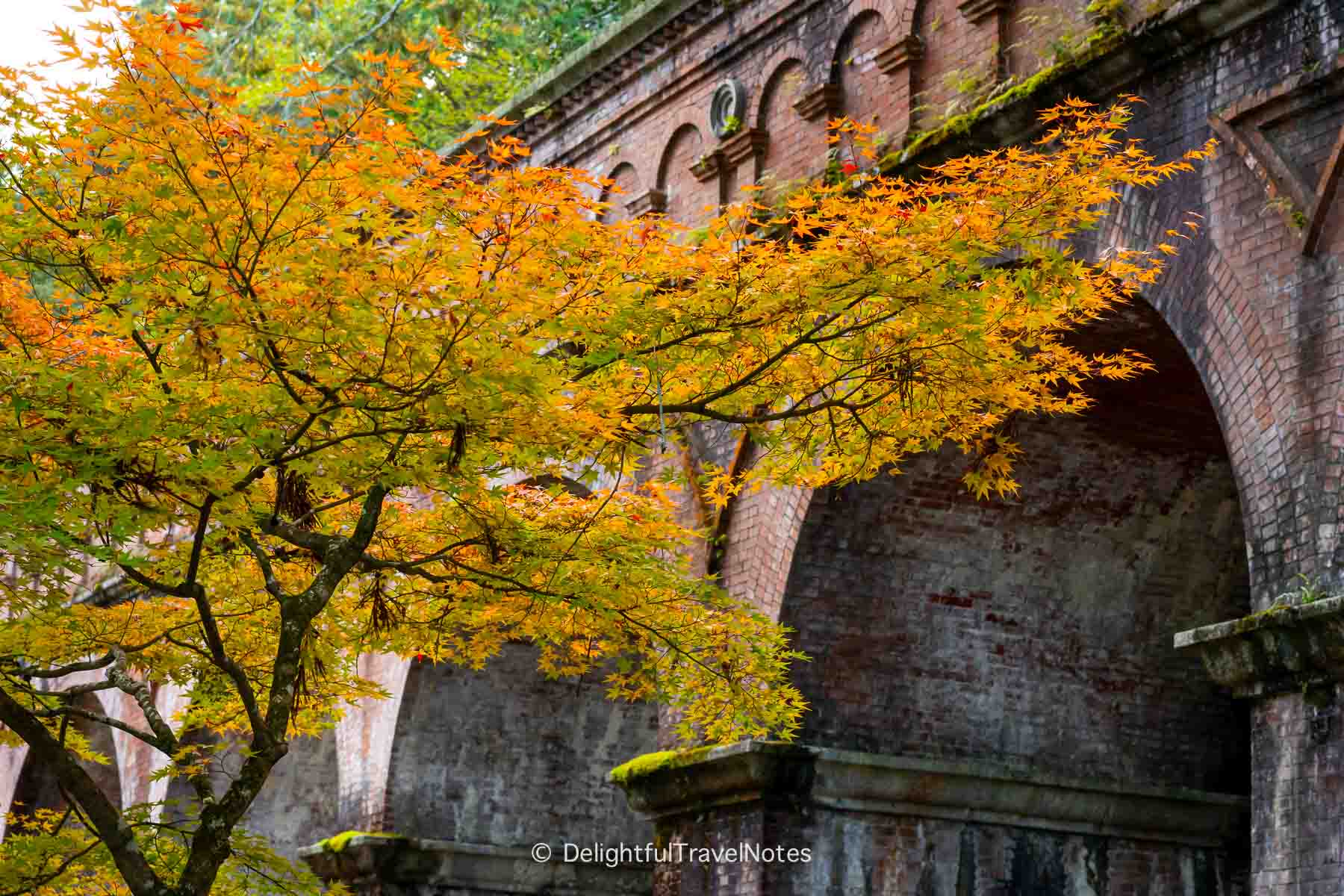
From the other side, the arches of the aqueduct framed the golden foliage beyond. The brick structure with a series of Roman-style arches is a rare sight in Japan, where wooden architecture traditionally dominates.
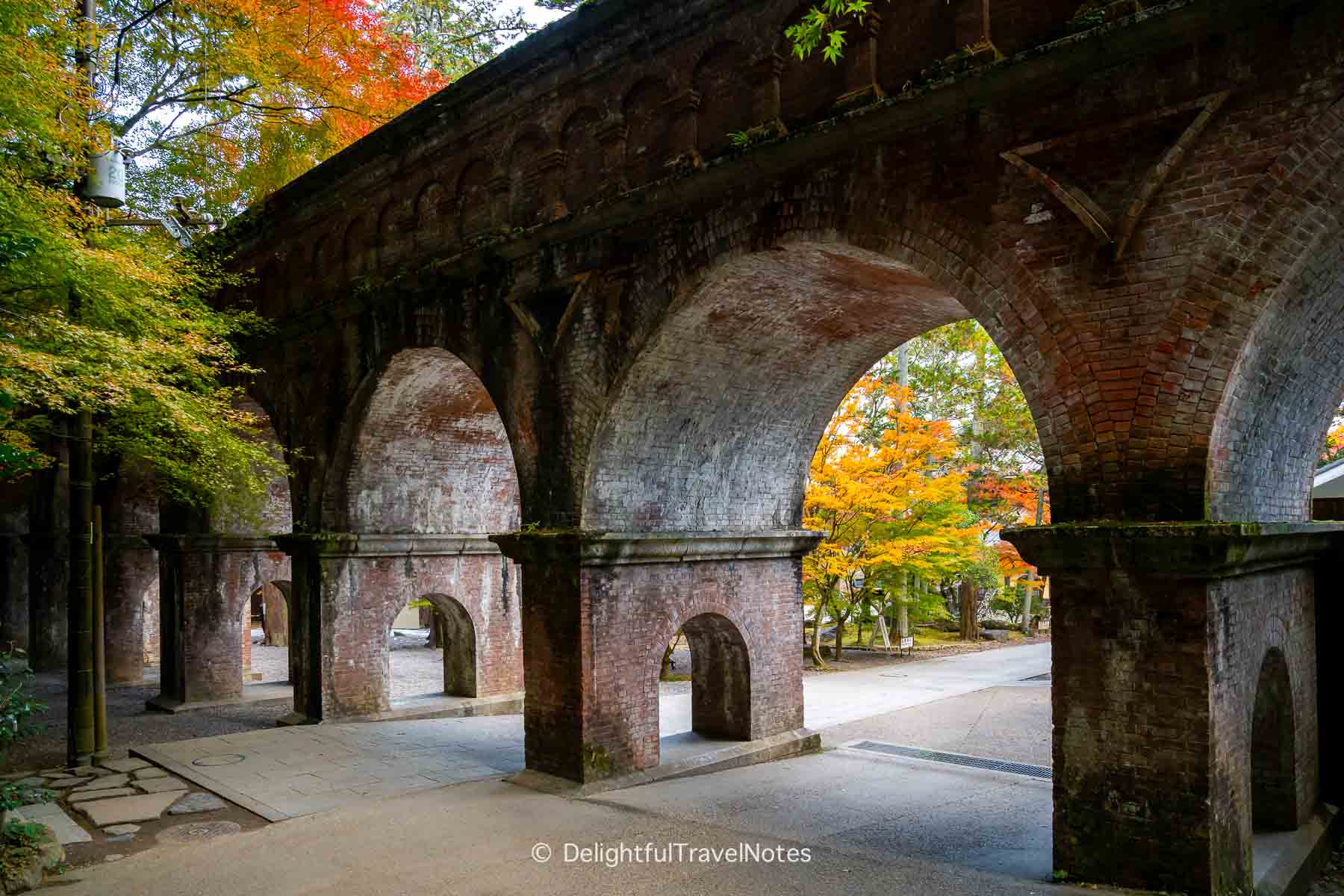
You can walk up the slope to see the top of the aqueduct where water is flowing. A little further on the right is Saisho-in, a small temple with very nice fall colors visible at its entrance.
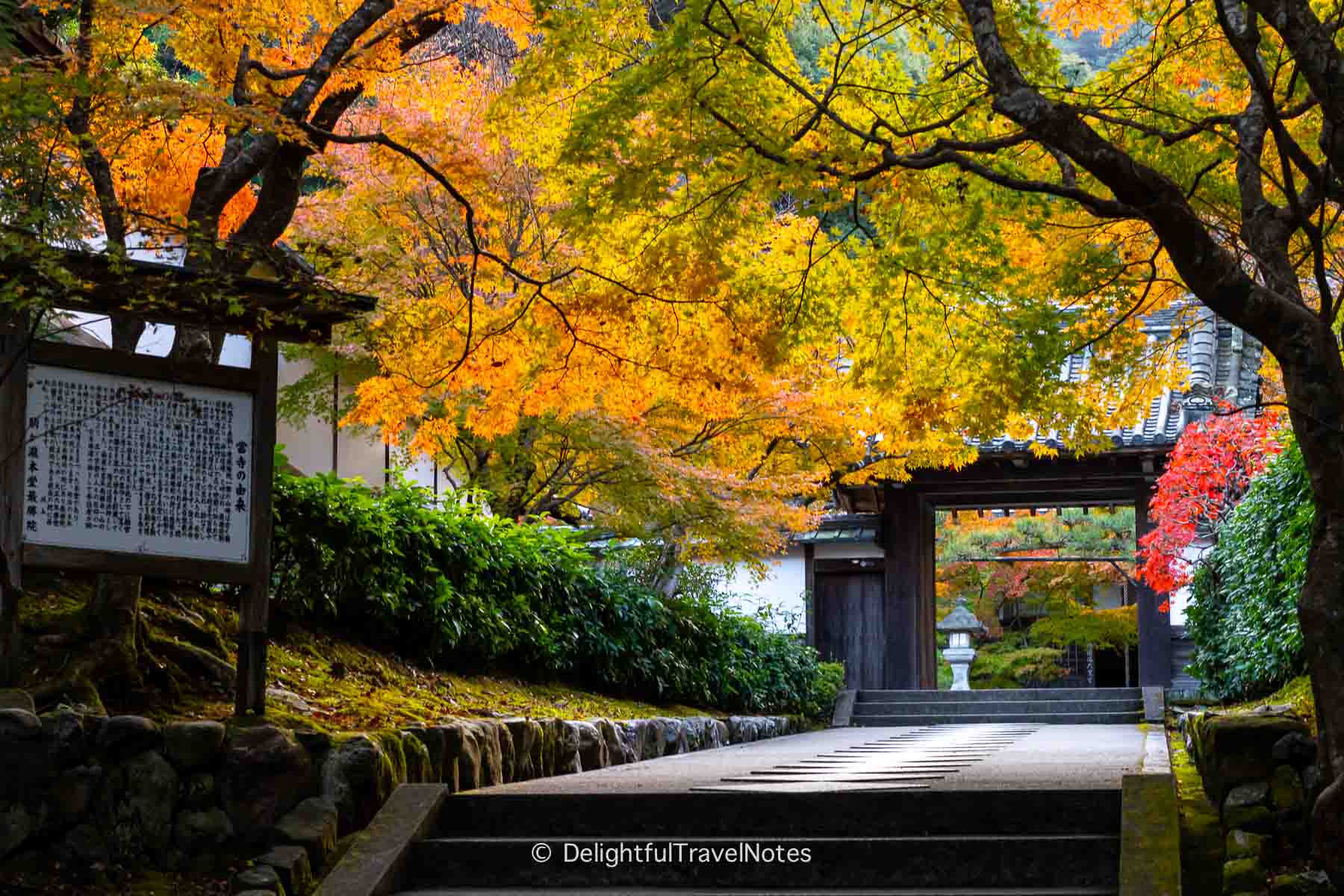
Nanzen-ji main hall opens at 8:40 am, and its sub-temple Tenjuan opens at 9 am. The garden of Tenjuan is also famous for fall foliage. Since we had visited Nanzen-ji on a previous trip to Kyoto and felt satisfied with the fall colors we had already seen, we decided not to wait for the opening times. Instead, we headed back to our hotel to enjoy a leisurely breakfast. Overall, I think the grounds of Nanzen-ji are an excellent free spot to check out fall foliage in Kyoto.
Photography equipment used
- Sony a7 III with Sony 24-70mm F2.8 GM full frame lens (there is an updated version of this lens)
- Sony ZV-E10 with Sony 55mm F1.8 Sonnar full frame lens

Explore More
Sumiyoshi Taisha – A Must-See in Osaka for Cultural Lovers
Fall Foliage at Eikan-do in Kyoto: Day and Night Illuminations Comparison
Ishiyamadera – Stunning Fall Foliage Spot in Shiga (Under an hour from Kyoto)